Man Mo Temple gets a new community space as part of an old tradition
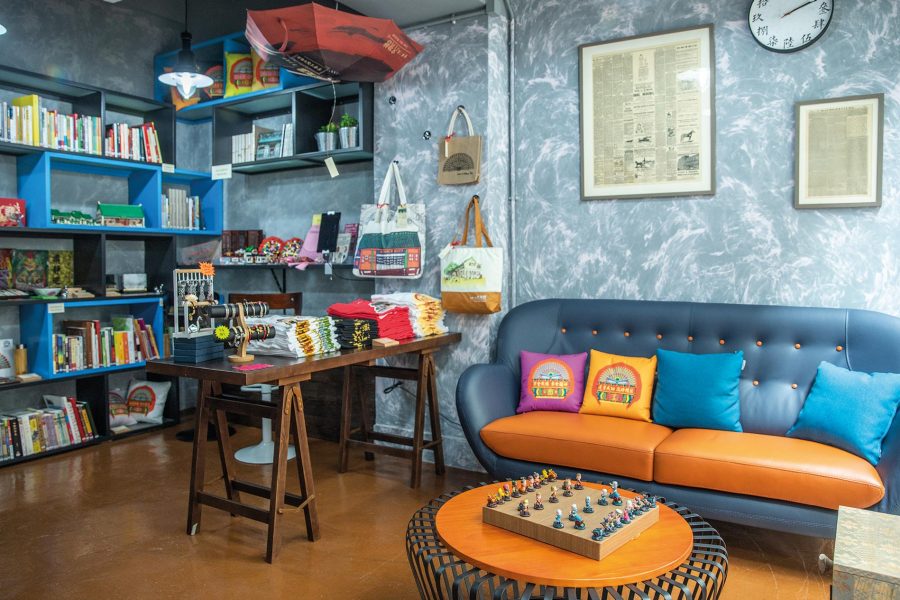
Students come to pray to Man Cheung – the god of literature and bureaucracy – for success in exams. Professionals pray for prosperity to Kwan Mo – the god of military prowess. Tourists flock to marvel at the 173-year-old Qing Dynasty architecture and breathe in the heady incense from the coiled joss sticks which line the ceilings.
But the real purpose of Sheung Wan’s Man Mo Temple, built by local gentry circa 1847, is to serve the community. And the opening of a new social hub has taken this mission into the 21st century.
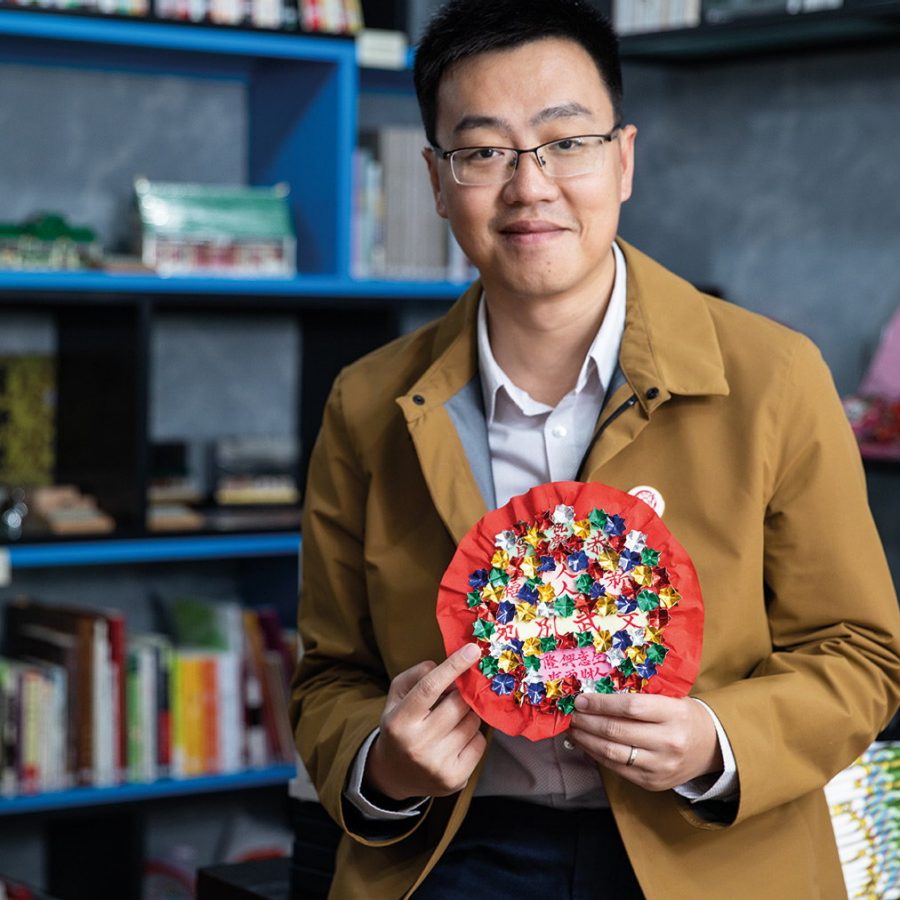
Credit: Moses Ng
‘Man Mo Temple is the archetype of local Chinese charities’, explains Vandesar Leung, assistant planning officer (ritualistic services) at Tung Wah Group of Hospitals , which became the official guardian of the temple in 1908.
‘In the past, Taoist temples doubled as community centres, where worshippers and residents gathered to seek a wide spectrum of welfare services provided by the gentry – spanning education, medical care, employment referral, arbitration and consolation,’ explains Leung. ‘The religious site has since transformed into a non-religious community body, connecting residents of all ages.’
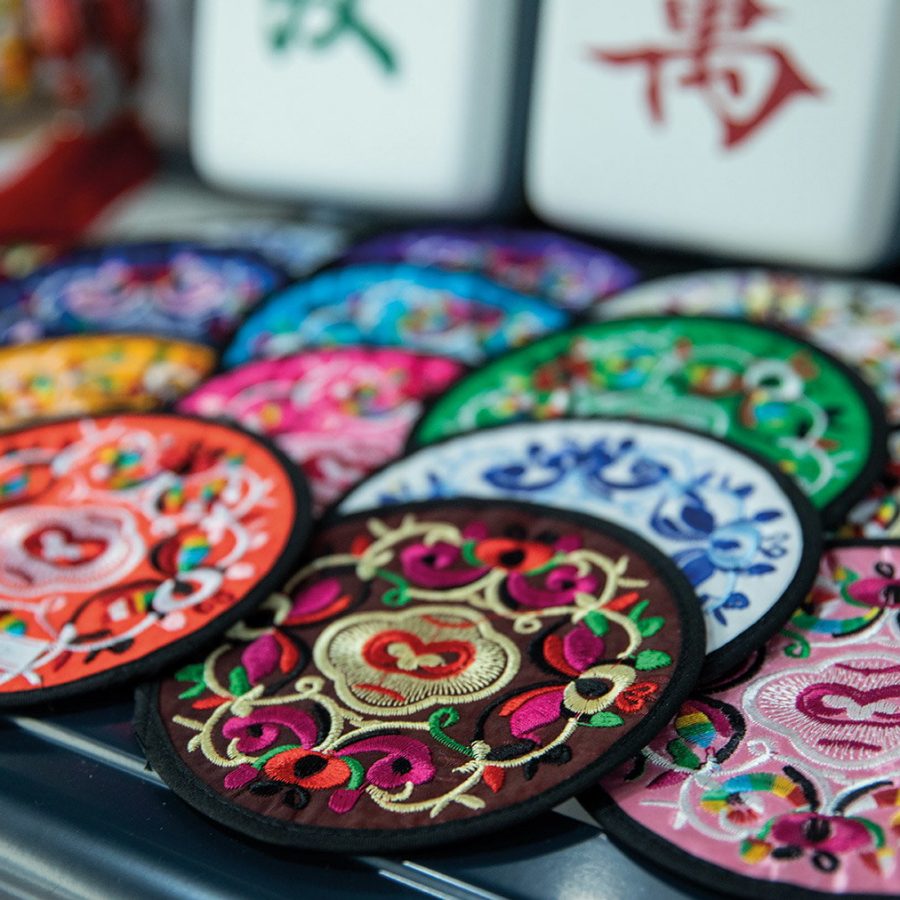
Credit: Moses Ng
It’s in that spirit that the new Man Mo Lounge has opened, a stone’s throw from the main temple complex. There’s no incense here: Man Mo Lounge is a contemporary, multi-functional space. It’s part relaxation lounge, with a sofa and vending machine for refreshments; part lending library, with a range of books delving into Taoist and Buddhist rituals as well as Hong Kong’s history and culture; and part souvenir shop, with an eclectic mix of traditional Chinese handicrafts, locally designed merchandise, anime-inspired outfits of Kwan Mo, and toy brick models of the temple – perfect for visitors hoping to take home a piece of Hong Kong tradition, with all proceeds going to charity.
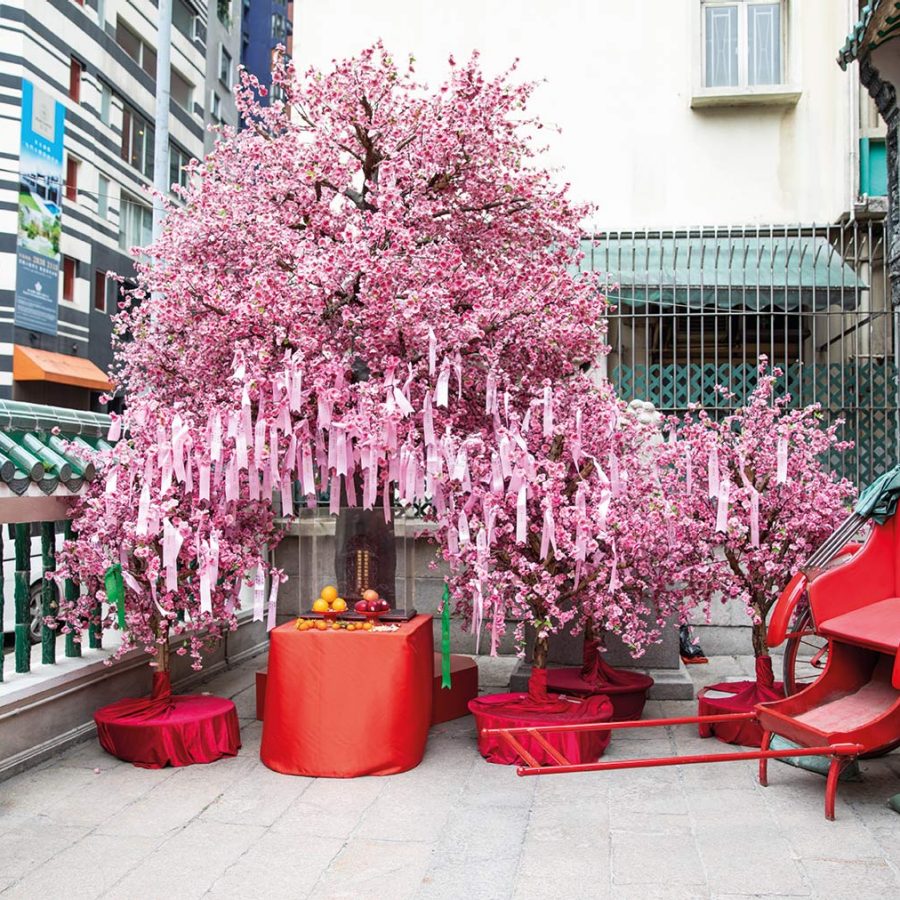
Credit: Moses Ng
The lounge also organises weekend workshops to further foster communal gatherings, from learning the craft of Chinese knots to puppet-making and creating scented sachets. And if you’re just exhausted after a day’s walking around Central, people are welcome to visit the lounge simply to socialise or unwind.
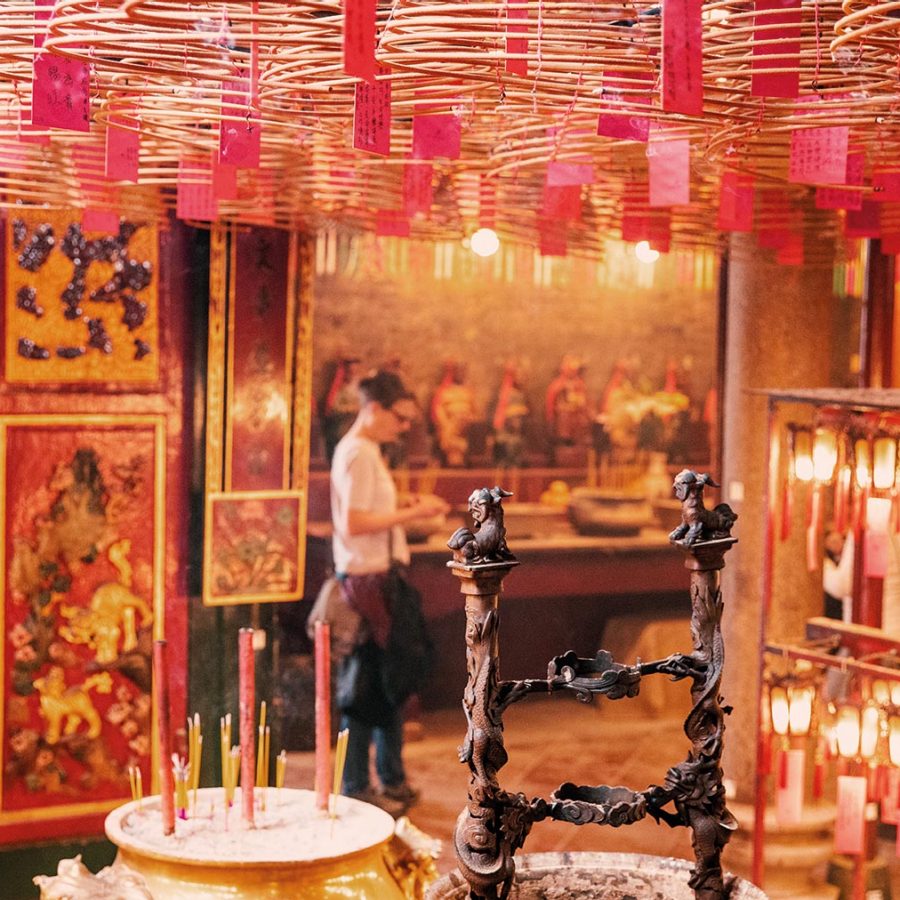
Credit: Moses Ng
‘It’s a time-honoured tradition in Chinese communities for temples to also serve as social and commercial hubs,’ says Vandesar. ‘In the case of Man Mo Temple, its roots and raison d’être lay in philanthropy and community-building. Today, its multi-faceted role and inclusive spirit still represent the zeitgeist.’
5 Square Street, Sheung Wan; +852 2614 8744
More inspiration
Hong Kong travel information
- China – the Chinese Mainland, Hong Kong SAR, Macao SAR and Taiwan Region
- Hong Kong SAR - English
- Chinese Mainland (China) - English
- Taiwan, China - English
- 香港特別行政區 - 繁體中文
- 中国內地 - 简体中文
- 中國台灣 - 繁體中文
- Africa
- South Africa - English
- Asia
- Bangladesh - English
- Korea - English
- Singapore - English
- Cambodia - English
- 한국 - 한국어
- Sri Lanka - English
- India - English
- Malaysia - English
- Thailand - English
- Indonesia - English
- Maldives - English
- ประเทศไทย - ภาษาไทย
- Indonesia - Bahasa Indonesia
- Myanmar - English
- Vietnam - English
- Japan - English
- Nepal - English
- Việt Nam - tiếng Việt
- 日本 - 日本語
- Philippines - English
- Australasia
- Australia - English
- New Zealand - English